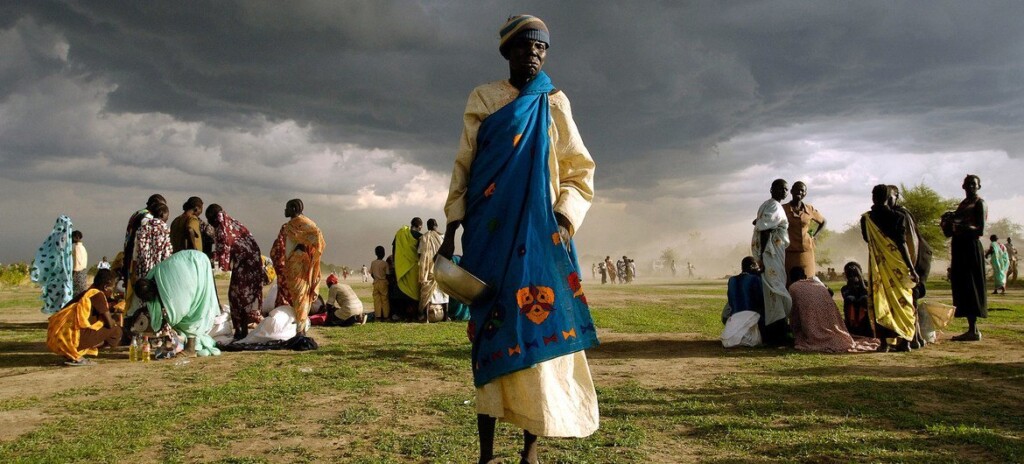Sudan-South Sudan border: Five dead in attack on nomads in Abyei

An elderly woman, internally displaced from her home in Abyei in Sudan, gets ready to receive her ration of emergency food aid (File Photo: UN Photo / Tim McKulka)
ABYEI –
Five people have been killed and six injured, including women and children, in an attack by gunmen on a nomadic group in the Hafir El Silik area of the disputed Abyei region on the border between Sudan and South Sudan on Saturday.
Bulabek Deng Kuol, sultan of the Ngok Dinka, confirmed the incident to Radio Dabanga but denied it had a link to the clan disputes following a spate of cattle thefts since April. “There is no interest in the Misseriya to attack,” he says.
Reliable other sources say that the attack was carried out by the armed movement ‘Titabai’, which is affiliated with South Sudan, and engaged in cattle rustling.
The sources pointed out that the attack resulted in the death of five civilians, while six others were injured, including women and children under the age of two years. The injured were transferred by ambulance to the health centre in Bilal.
Residents of northern Abyei called on the UN Interim Security Force for Abyei (UNISFA) to intervene urgently to maintain security in light of the crisis in the country.
Tensions
Relations between the Misseriya and Ngok Dinka have been fraught in the past. Relationships between the two tribes improved when they started holding regular peace conferences on conflict drivers, such as cattle raids, grazing areas, protection of crops, and access to water, and signed a peace deal five years ago.
The Ngok Dinka are indigenous inhabitants of Abyei and reside there all year long whilst the Misseriya, a nomadic Arab herding tribe with members in Kordofan, Darfur, and Chad, rely on long-held agreements to move their cattle through Abyei and South Sudan in the dry season to find water and pastures for grazing.
During the civil war and disputes between Sudan and South Sudan, the Dinka Ngok sided with South Sudan and the Sudan People’s Liberation Army/Movement (SPLA/M) whilst the Misseriya were mobilised as a proxy militia by Sudan’s Al Bashir regime, which supported ‘Arab’ herders whilst looking down on ‘African’ farmers.
Such ethnic discrimination and tensions over grazing were also at the roots of the Darfur Genocide and similar hostilities over land also exist between the Misseriya and the Nuba clans in Kordofan.
Protection
Abyei, an area at the Sudan-South Sudan border, is the traditional homeland of the Ngok Dinka, who have strong ties with the South Sudanese Dinka tribe. Herders of the Misseriya, an ‘Arab’ tribe, traverse Abyei and other Sudan-South Sudan border areas with their cattle in search of water and pasture in the dry season and to trade goods. The region witnesses many cases of cattle rustling, hijacks, and other robberies.
Since the secession of South Sudan from Sudan in 2011, both countries claim the oil-rich region of Abyei. In the same year, the UN Security Council decided on the establishment of UNISFA, to monitor and verify the redeployment of armed forces from Abyei. UNISFA also has a mandate to protect civilians under imminent threat of physical violence, to protect the area from incursions by unauthorised elements, and ensure security.











 and then
and then